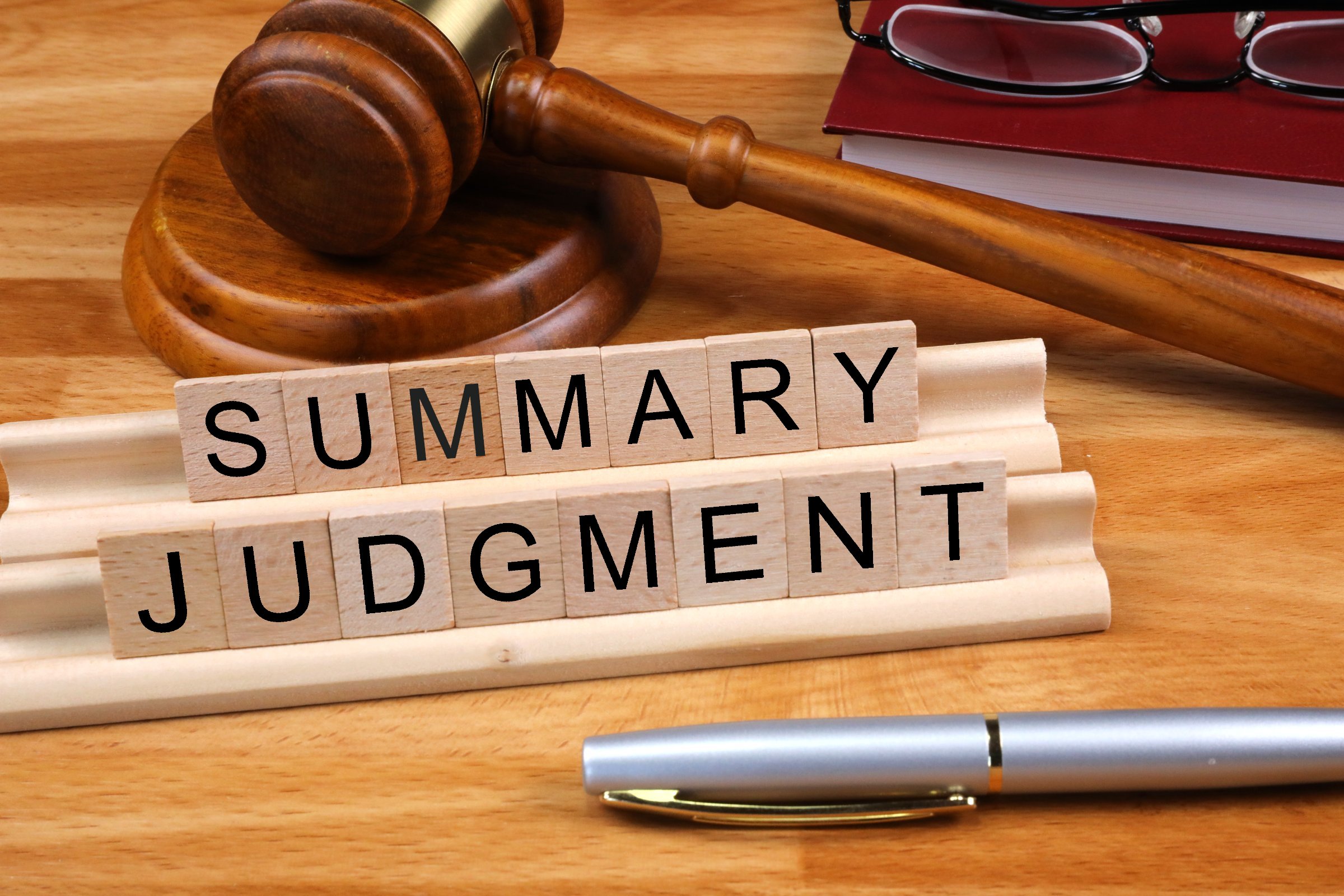When it comes to personal injury cases, navigating the legal landscape can be complex and overwhelming. One crucial legal concept that often arises in such cases is “summary judgment.” We’ll dive into what a summary judgment is, why it matters in personal injury litigation, and how attorney Krystin Collins can help you navigate this legal terrain.
What Is Summary Judgment?
Why Does Summary Judgment Matter in Personal Injury Cases?
Summary judgment is a legal procedure in which a court makes a decision on a case without the need for a full trial. It is typically used when one party in a lawsuit believes that there are no genuine disputes of material fact and that they are entitled to judgment as a matter of law. In other words, summary judgment is a way to resolve a case relatively quickly if there is no significant dispute over the essential facts or legal issues involved.
Here’s how the process generally works:
- Motion for Summary Judgment: One of the parties in a lawsuit (usually the defendant) files a motion for summary judgment. This motion argues that there are no genuine issues of material fact and that the law supports a judgment in their favor.
- Response: The opposing party (typically the plaintiff) has the opportunity to respond to the motion. They can present evidence, affidavits, and legal arguments to demonstrate that there are indeed genuine disputes of material fact that require a full trial.
- Hearing: In some cases, a hearing may be held where both parties can present their arguments orally.
- Judge’s Decision: The judge reviews the motion, the response, and any evidence presented. If the judge determines that there are no genuine disputes of material fact and that one party is entitled to judgment as a matter of law, they may grant summary judgment in favor of that party.
Summary judgment can be a critical juncture in a personal injury lawsuit for several reasons:
- Efficiency: Personal injury cases can be lengthy and expensive. Summary judgment allows for a quicker resolution, saving you time, money, and emotional stress.
- Weeding Out Weak Claims: Defendants often use summary judgment as a way to challenge the strength of the plaintiff’s case. If the court grants summary judgment in favor of the defendant, it means the plaintiff’s case lacked sufficient evidence to proceed.
- Legal Precedent: Summary judgments can establish legal precedent. A favorable summary judgment can strengthen your position, and even if the case proceeds to trial, it may lead to a more favorable settlement.
- Risk Mitigation: Avoiding trial can be advantageous for both parties. Plaintiffs don’t have to risk an unfavorable jury verdict, while defendants can minimize potential financial and reputational damage.
How Krystin Collins Can Help
Attorney Krystin Collins specializes in personal injury law and has a deep understanding of summary judgment’s implications. Here’s how she can assist you:
- Case Evaluation: Krystin will thoroughly assess your case to determine if seeking or opposing summary judgment is in your best interest.
- Evidence Gathering: She will help you gather and present compelling evidence to strengthen your position during summary judgment proceedings.
- Legal Expertise: Krystin’s legal expertise and experience will be instrumental in crafting persuasive legal arguments in your favor.
- Negotiation Skills: In case summary judgment doesn’t go in your favor, Krystin is a skilled negotiator who can work towards a favorable settlement
In personal injury cases, summary judgment is a pivotal moment that can greatly impact the outcome of your lawsuit. Attorney Krystin Collins is committed to using her expertise to ensure that your rights are protected and that you have the best chance for a successful resolution. If you find yourself facing a personal injury case, don’t hesitate to reach out to Krystin Collins for guidance and representation. She is here to help you navigate the complexities of the legal system and work tirelessly to secure the compensation you deserve.
Krystin Collins
Attorney at Law
krystin@krystincollins.com
(832) 242-3771
Disclaimer: The content provided is intended for informational purposes only and should not be considered legal advice. Consult with a us for personalized guidance on how these laws may affect your specific circumstances.

